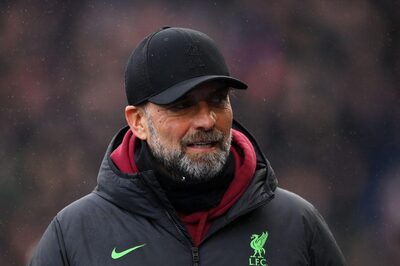
views
Canada: Canadians elected Conservative Party leader Stephen Harper as their next prime minister Monday, but denied him the outright majority he would need to take any strong change in direction.
Prime Minister Paul Martin, whose scandal-plagued Liberal Party was ousted after 12 years in power, called Harper to concede defeat and announced he would step down as party leader after a "tough night."
"There will be another chance, and there will be another time," Martin said. "The people of Canada have chosen (Harper) to lead a minority government, and I wish him the best."
Buoyed by a political resurrection in French-speaking Quebec, the Conservatives won the most seats in the 308-seat House of Commons, despite a campaign in which Liberals tried to stop Harper by linking him to American conservatives in general -- and President Bush in particular.
However, as the votes were being counted the Conservatives were hovering at around 125 seats, well short of the 155 they needed for a majority, while the scandal-plagued Liberals were winning around 100 seats, down from the 133 they held going into the vote.
The Conservatives were taking about 36 per cent of the vote nationwide, compared to 30 per cent for the Liberals, 17 percent for the left-wing New Democrats and 10 per cent for the Quebec-separatist Bloc Quebecois, which only runs candidates in the province.
Under Canada's electoral system, the Conservatives, as the largest party, would form a minority government, as Martin did after a similar split in the last election in 2004. That will force Harper to find support from around 30 opposition lawmakers in order to advance measures through Parliament.
Double-digit gains for Conservatives
In Monday's vote, the New Democrats appeared to be siphoning support from the Liberals on the left, increasing their seat count from 18 to around 30.
The Bloc Quebecois lost a handful of seats but was still holding around 50.
Going into the election, the Conservatives did not hold a single seat in Quebec, having garnered less than 9 percent of the vote there in 2004.
But Monday, they were on track to take 10 of the province's 75 seats, winning more than 25 percent of the vote -- a showing that denied the separatist Bloc an outright majority and pushed the Liberals into third place.
The Conservatives also made a double-digit gain in seats in Ontario, the most populous province and a Liberal stronghold.
Harper, 46, an economist from Calgary, was poised to become 22nd prime minister of Canada, marking a comeback for the political right after a dozen years in the political wilderness.
"We know we've run a good campaign," Harper said before the vote. "We've run the campaign we wanted to run and got our message out."
The Liberals, finding themselves behind in the polls, attacked Harper late in the campaign with television ads in which they tried to portray him as a far-right conservative in the US mode and link him to Bush, asking voters to "choose your Canada."
A similar tactic worked against Harper in 2004, when a Conservative lead evaporated in the campaign's closing days. But this time around, Harper sought to allay concerns among moderate voters, pledging not to change the country's abortion laws and vowing to take a tougher line against the US in an ongoing trade dispute over softwood lumber.
Harper also said he would not bring Canada into the US coalition in Iraq, expressing "great disappointment" that weapons of mass destruction had not been found. At the time of the 2003 invasion of Iraq, Harper and other conservatives were critical of the decision by Martin's predecessor, Jean Chretien, not to participate.
However, Harper has said he would have Parliament revisit a controversial decision by Martin's government to legalize same-sex marriage across the country, a measure he opposed.


















Comments
0 comment